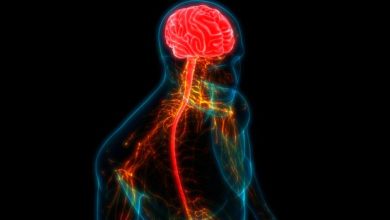Researchers Reveal 10 Daily Habits That Make You Age Faster
It happens one day. We look at ourselves in the mirror and suddenly notice a new wrinkle or age spot on the skin that hasn’t been there before. Our skin serves many purposes, and our facial skin is especially exposed and stands at the forefront, hence it is so prone to evident damage. What causes our facial skin to age and what can you do about it?
Here are the top 10 factors that cause premature aging of your facial skin:
1. Sun
Sun exposure is a major factor and is more important than our chronological age to the appearance of age spots, wrinkles, reducing in skin elasticity and sagging crepey skin. In fact about 70% of skin aging process depends on the amount of sunlight our skin is exposed to throughout our life.
Solar radiation accelerates destruction of collagen fibers in our skin through oxidation process. The elastic collagen fibers become rigid and fragile and their basic structure is destroyed – a phenomenon called solar elastosis.
The accelerated oxidation processes also damage the genetic material in the skin cells and cause an abnormal division of cells. Thus the solar radiation also increases the risk of malignant and pre-malignant skin lesions and of course leads to the appearance of rough, thin and wrinkled skin. Beyond that, prolonged sun exposure damages the sebaceous glands and causes dry and sensitive skin.
2. Smoking
Smoking causes premature fine lines that typically appear on places where the skin is very thin, such as the sides of the eyes (smile lines) and above the upper lip. These typical smoking lines may appear 10-15 years before they appear among non-smokers.
The reason for the premature wrinkles among smokers lies in the reduction of vitamin C level in their blood, which is 60% lower on average in comparison to the level found in the blood of non-smokers.
Vitamin C is a key component in the production of collagen fibers, which are responsible for the elasticity and appearance of youthful and healthy skin, whereas lack of it affects the proper production of collagen.
3. A diet low in protein and rich in simple carbohydrates
A diet rich in simple sugars and sweets causes the connective tissue of the skin to become rigid and lose its elasticity. On the other hand, complete protein is important to the production of protein structures that are vital to the appearance of fresh skin, such as hyaluronic acid, collagen and elastin fibers.
4. A diet low in fruits and vegetables
Fruits and vegetables are the main source of antioxidants in our daily nutrition. Sun exposure, smoking, chronic diseases and air pollution expose us to accelerated oxidation damages in our body.
Soluble dietary antioxidants such as lycopene, lutein, beta-carotene and other antioxidants found in fruits and vegetables reach the deeper skin layers (the dermis) and partially neutralize the oxidative damage associated with prolonged exposure to the sun.
Also fruits and vegetables rich in vitamin C are essential to the proper production of collagen. Berries are especially rich in vitamin C. You can find easy and nutritious berry recipes in my e-book The Healing Berry Guide. This e-book will teach you how to transform your health with berries and their amazing health benefits.
5. Genetics
Our body has an inherent ability to produce enzymes that operate as antioxidants, along with the ability to correct individual damage to DNA which is the genetic code present in all cells.
These antioxidant enzymes produced in our body are responsible for the effective repair of the damage to our genetic code that occurs with the aging process.
However, the tendency to repair genetic damage and the amount of antioxidants our body produces naturally are inherent in our genome, so our parents also affect the degree of damage caused to our skin with the aging process.
6. Stress
Prolonged emotional stress causes increased secretion of stress hormones such as cortisol and adrenaline. These stress hormones accelerate various aging processes that include suppression of normal synthesis of connective tissue, characteristic obesity of the face, along with osteoporotic processes that damage bone density and cause changes in bone structure.
7. Tendency to facial mimicry
The tendency to talk with exaggerated facial movements is acquired and learned. Intensive use of facial muscles brings exaggerated expression lines on the face that cause us to look older than we are.
For example, repetitive frowning causes the appearance of frown line between the eyebrows and may become permanent even from our late twenties. Also frowning and raising the eyebrows causes the appearance of horizontal forehead wrinkles that become deeper on the skin. Beyond wrinkles, repeated use of expression muscles causes their dominance under the skin and damages the relaxed and smooth appearance which is typical to young looking face.
8. Lack of sleep
During the stage of deep sleep, the pituitary gland in our brain secretes growth hormone. Continuous night sleep is actually one of the few times in the day in which this growth hormone is secreted in adults, and this hormone has a great importance in keeping various body tissues and their renewal, including the skin tissue.
Prolonged lack of sleep is clearly evident on the face and accelerates aging, as well as causes many other pathological processes.
9. Alcohol
Alcohol causes damage to the skin texture and color and has considerable influence on the eye sockets. Drinking excessive amount of alcohol causes bulged eyes and affects the skin due to the accumulation of toxic breakdown products in the deeper skin layers. This can cause the appearance of capillaries and redness of the cheeks and on the nasal bridge.
10. Depression
Prolonged feelings of sadness and hopelessness were found to cause shortening of telomeres – structures located in all the cells in our body that affect among other things on the life span of the cell.
Telomere shortening affects the genetic material (DNA) in all cells. It stops cell division and causes premature cell death. This shortening of telomeres and accelerated aging of the cells is most visible in tissues which are divided rapidly, such as skin tissue and hair.
Depression also causes increase in stress hormones and often accompanied with personal neglect, sleep disorders and poor nutrition – things that also accelerate the aging process.
What about water?
The effect of water on the skin is controversial. Some sources claim that one of the benefits of drinking water is softer, moister skin. I’ve also seen several references that claim that water will not prevent wrinkles as wrinkles and aging are mainly caused by sun, age and genetics.
Other sources claim that it is true that the outermost layer of your skin may feel rough if it doesn’t contain enough water, however there’s no scientific proof that drinking extra water can make dry skin supple.
But there is no denial that the aging process doesn’t only reflect in our skin. It also reflects in our body and the way it functions. Every organ and system in our body needs water to regulate body temperature, flush out toxins, aid digestion and carry nutrients to our cells. The cells of our skin also depend on water to better function and repair damage. So drink water – if not for your skin, then for your general health.
Maintaining healthy skin is also one of the 70 habits featured in my e-book 70 Powerful Habits For A Great Health which will guide you how to take positive steps to improve your wellness and overall health. Although you cannot change the genetic factor, you can still control the other factors to delay premature aging of our face. And once you are aware of these factors that cause premature aging of facial skin, you will have a better understanding of how to avoid them and improve certain areas that are relevant for you.












